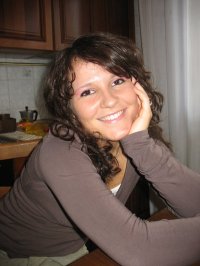My dear Godness, we can never relax! Today in class we talked about the
risks using the Internet. A lot of things came out, such as the risk to run into unwanted material or to infringe the copyright. Problems, always problems... life's hard! ; )
What can I say about this topic? Well, certainly the Internet is a great discover 'coz it really improved our lives. Thanks to the Internet, we can get information quickly, we can talk with friends in real time and we can share our documents. Nowadays everyone, especially young people, can use a computer 'coz
everything works thanks to technology. I personally don't like technology so much, but it's part of the world I'm living in, so I started to use it to keep me updated. In the end, I have to say it's extremely useful.
Of course, like all things in life,
the Internet can be good or bad, depending on the way we use it. At the moment, almost everyone is addicted to the most famous social network in the world: Facebook. I'm completely addicted to it: I enter it almost every day and I enjoy it a lot. I upload pictures, I make some funny quizzes, I chat with people, I read info about other people in their profiles. My dad hates to see me using Facebook, but I'm convinced there's nothing bad about it. It's true that it's a waste of time and that most times I enter it just for fun, but it's also true it helps me keep in touch with foreign friends and with friends I don't see very often. What's more, we, Facebook users, can decide whether a person can become our "friend" or not, it's not that everybody can see our profile or pictures. It's up to us, we decide who our friends are. Personally, my friends on Facebook are the people I know, I don't accept "friends" I don't know.
As I said before, all depends on how we use the Internet tools we know. If we're honest and aware of the fact that
it's better not to put too personal info on the web (such as our address and our telephone number) and that
we can't trust everything we find on it (like some advertising that tells you you won a car 'coz you're the thousandth user), we're on the right track! I'm not so ingenuous, I already knew I have to pay attention to the things I do using the Internet.
In my opinion, the only thing we can do is taking the Internet seriously, avoiding to do something that can "damage" ourselves.
Avoiding the Internet is really stupid, we'd better learn to use it properly.





